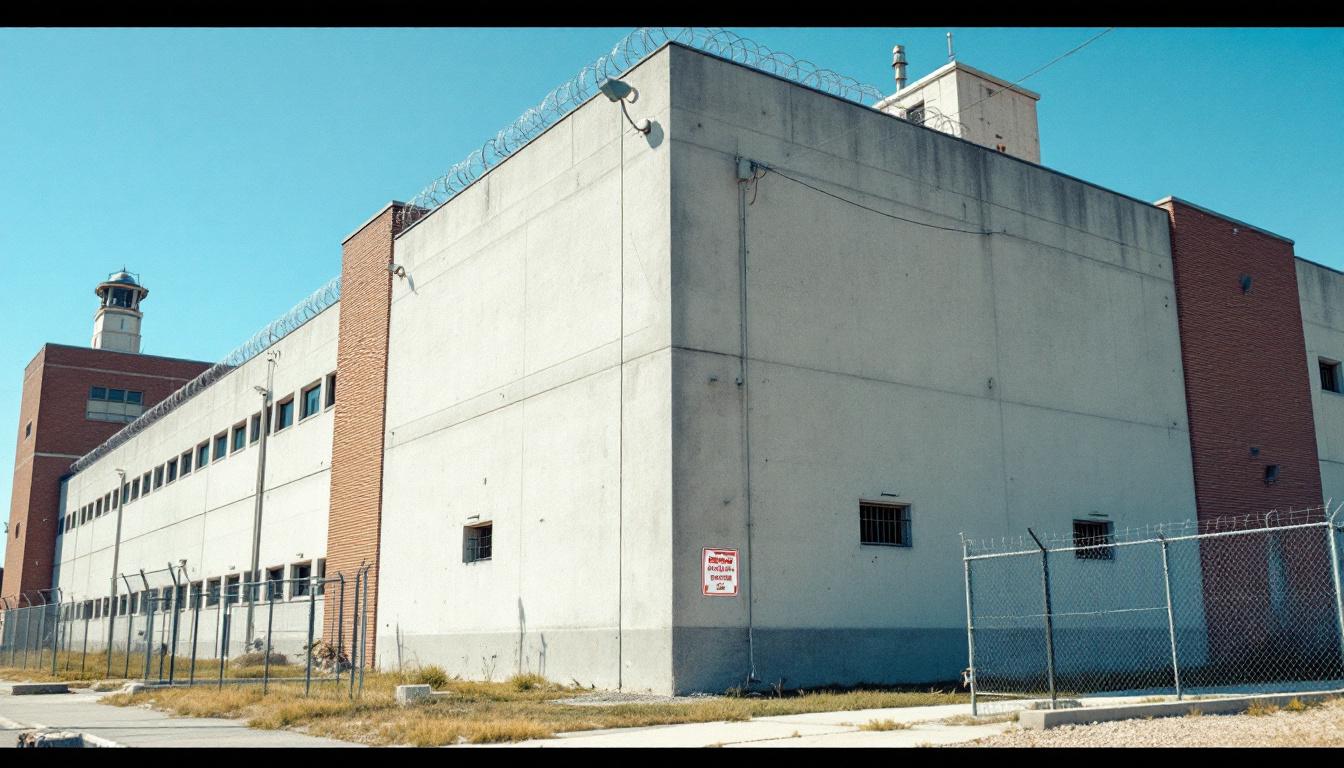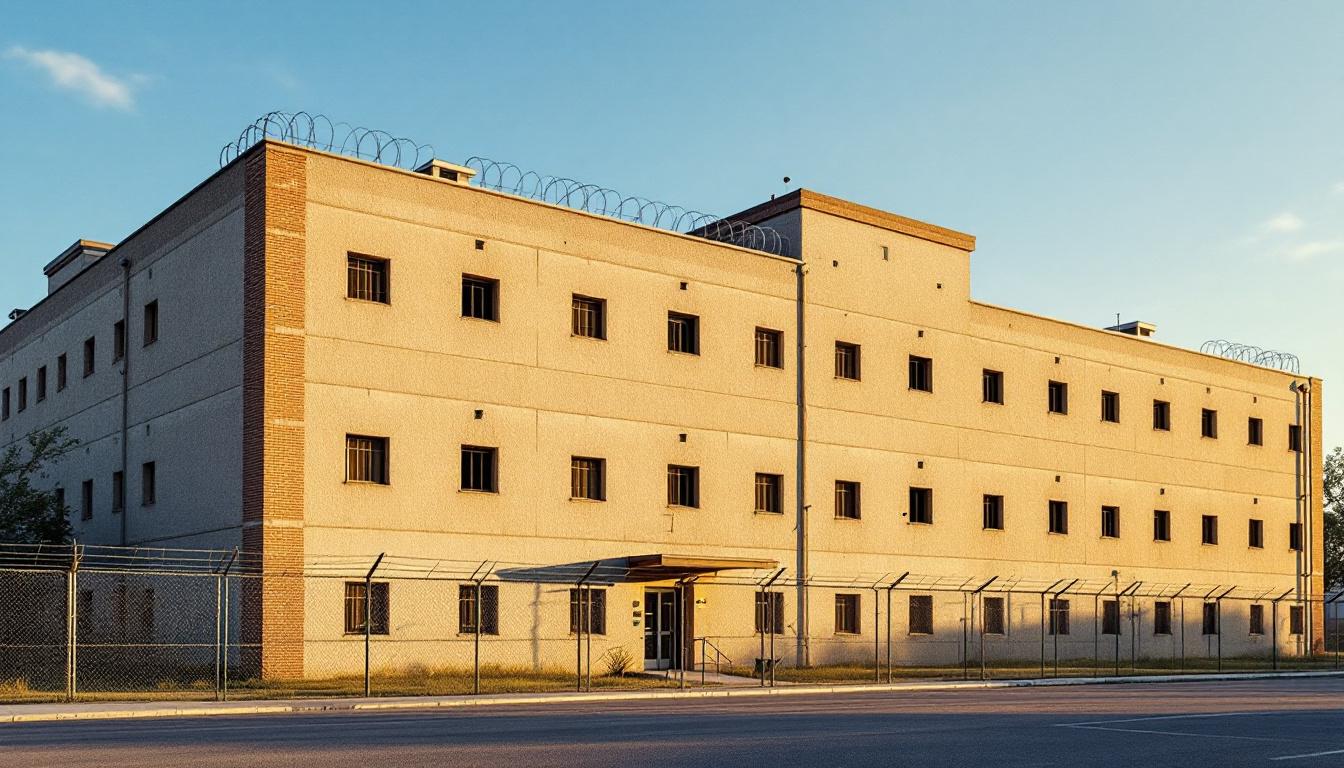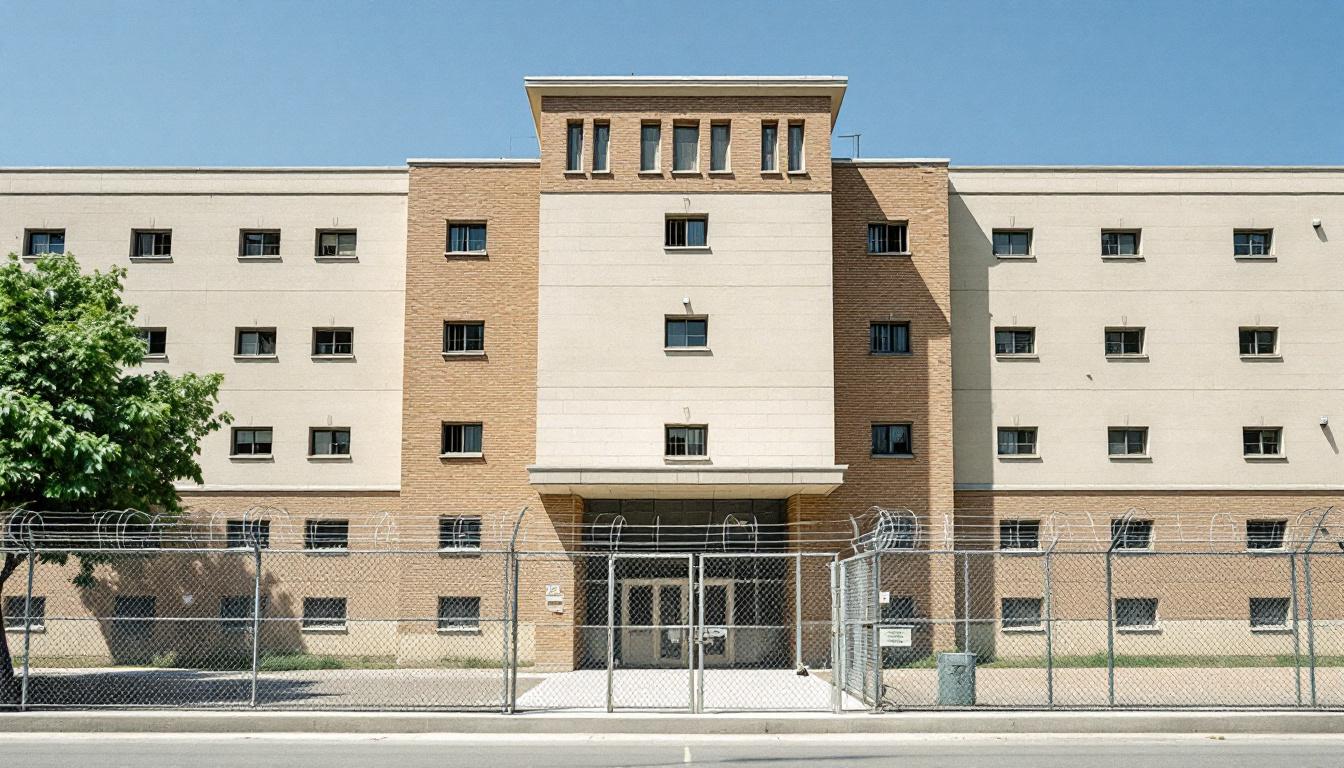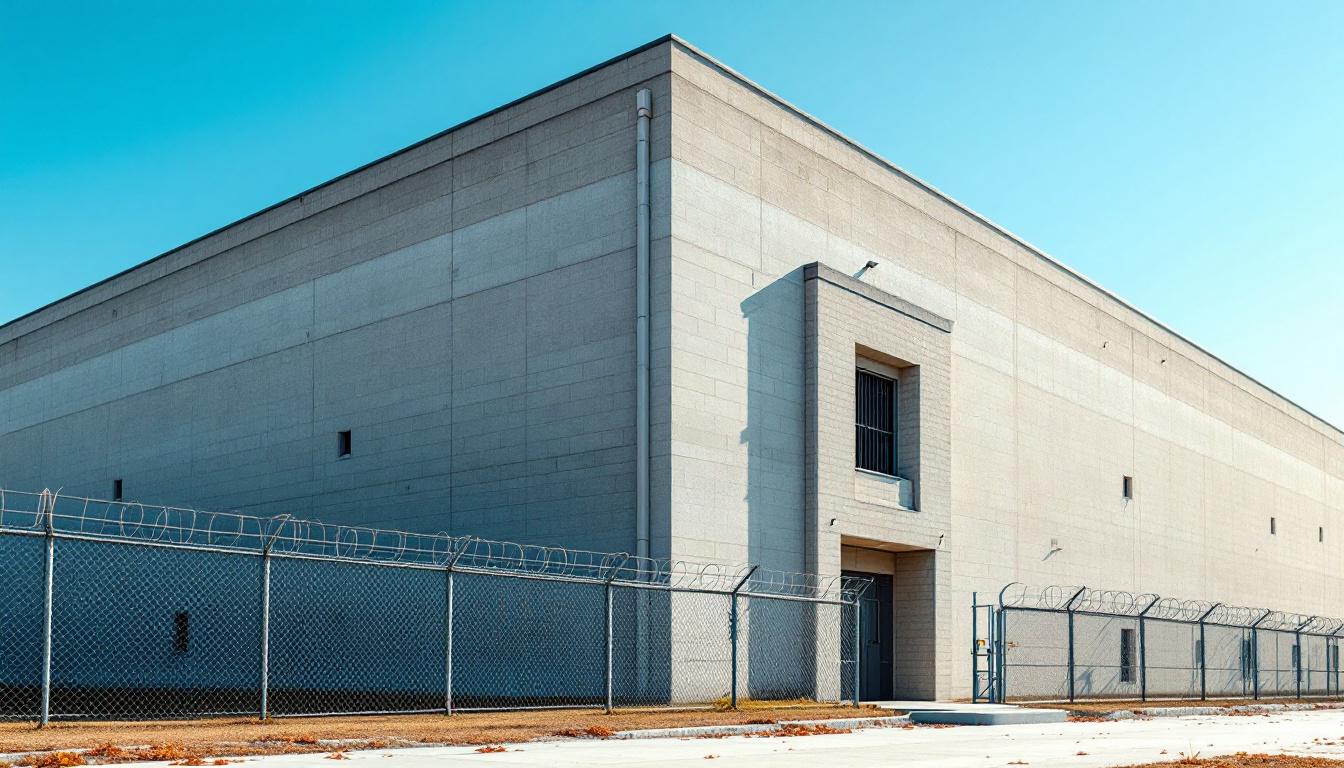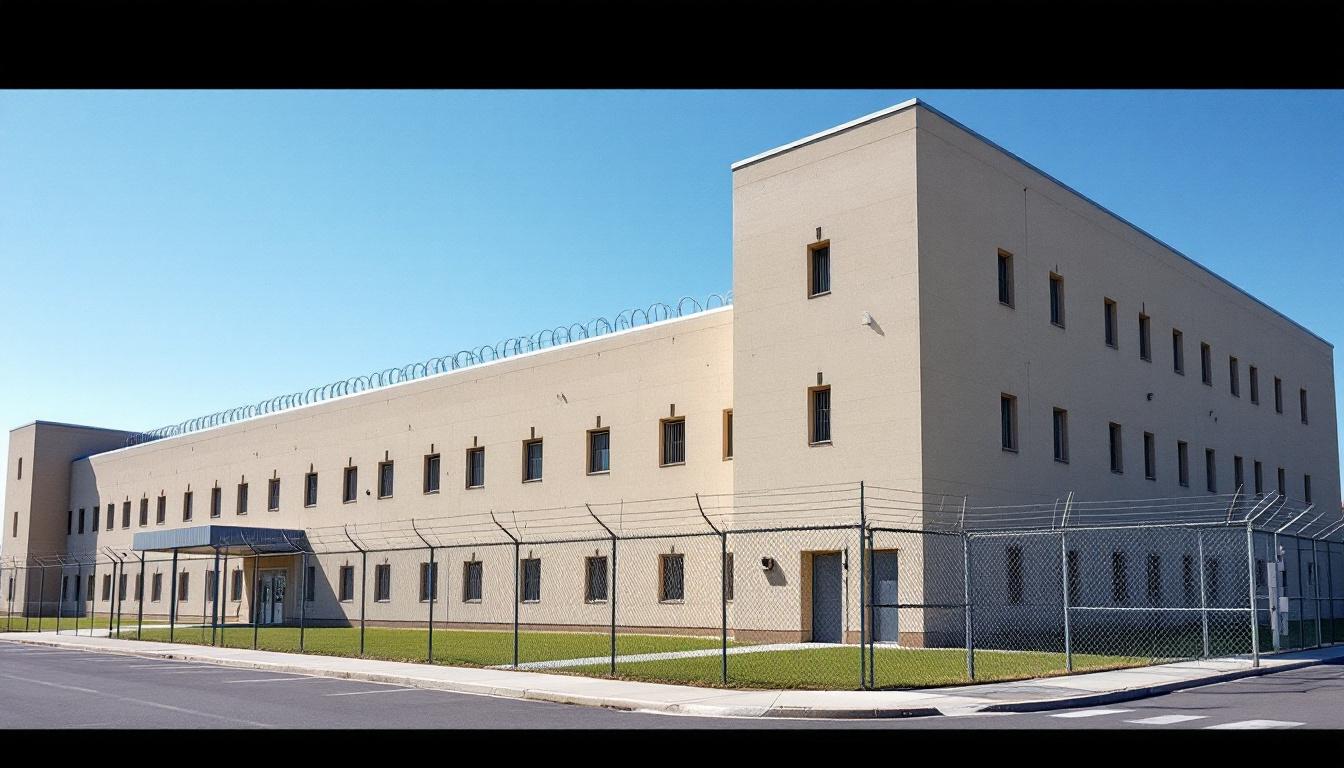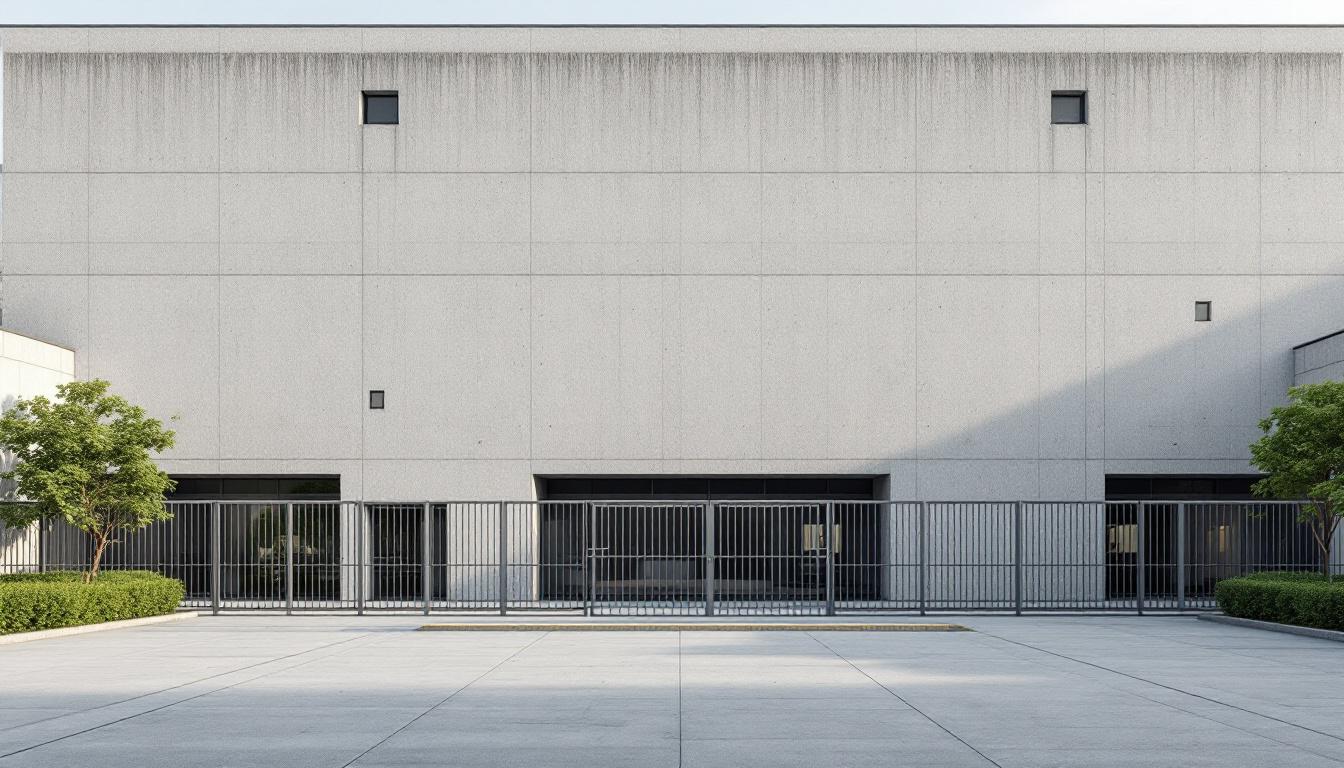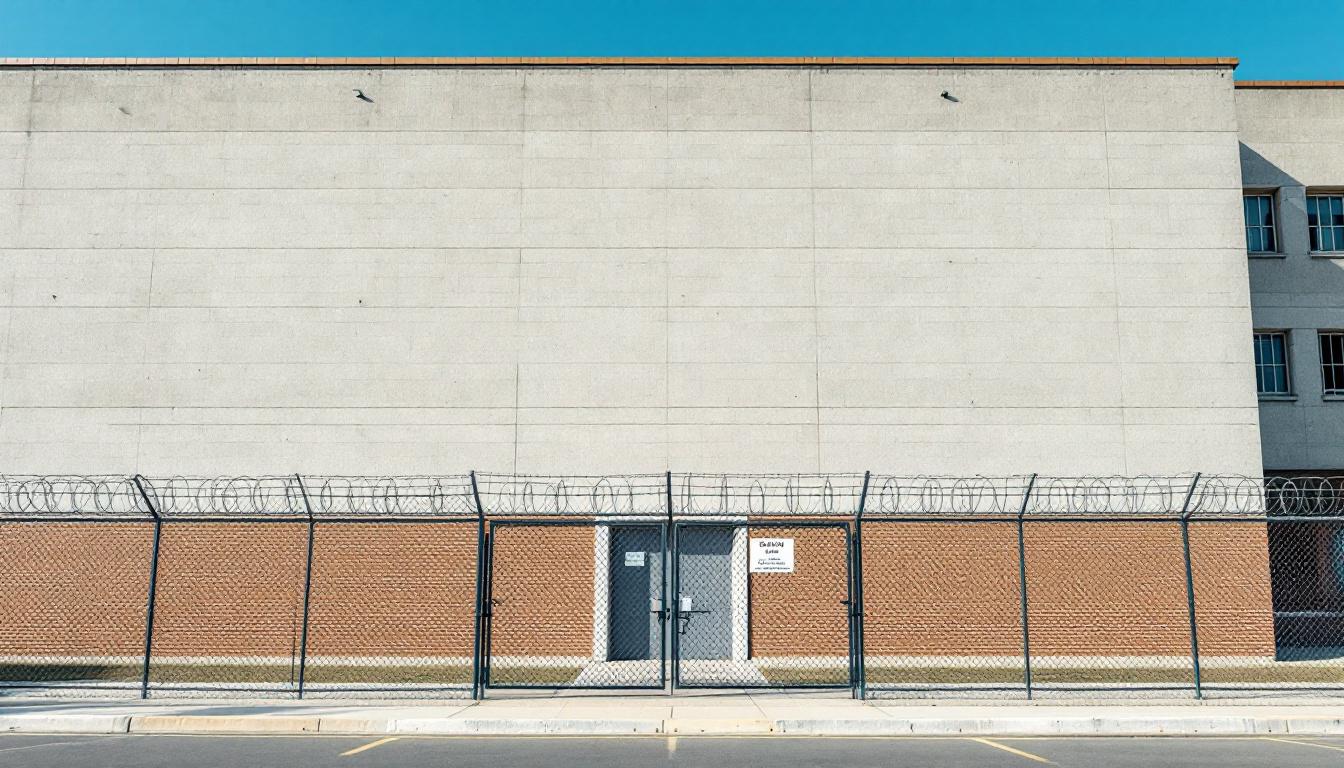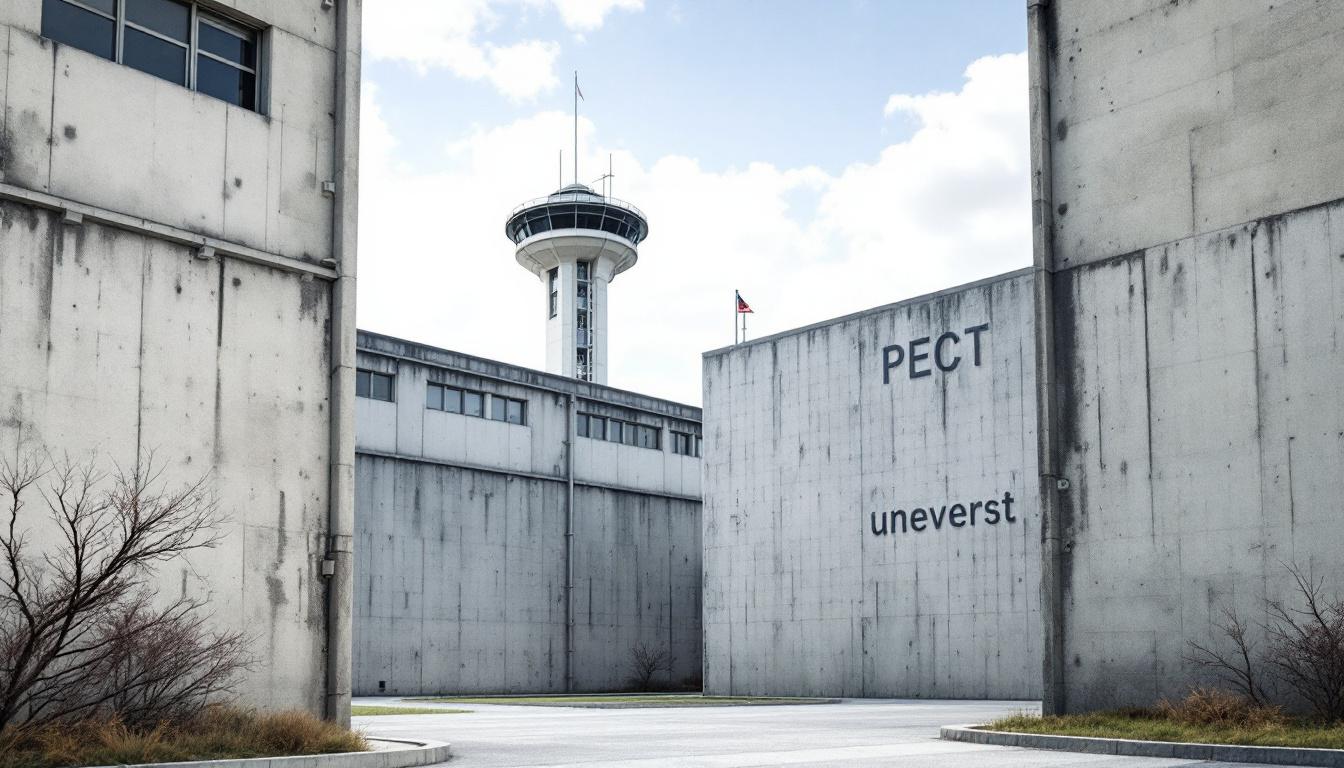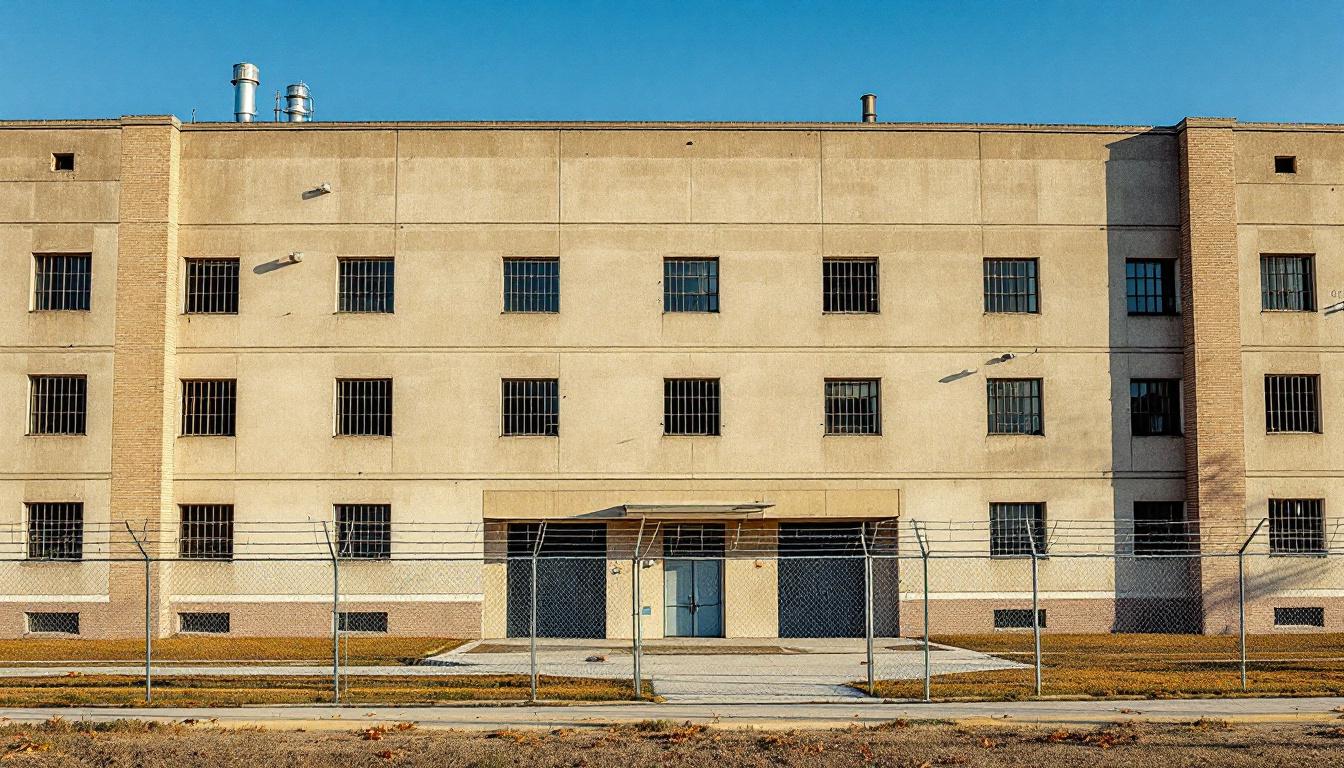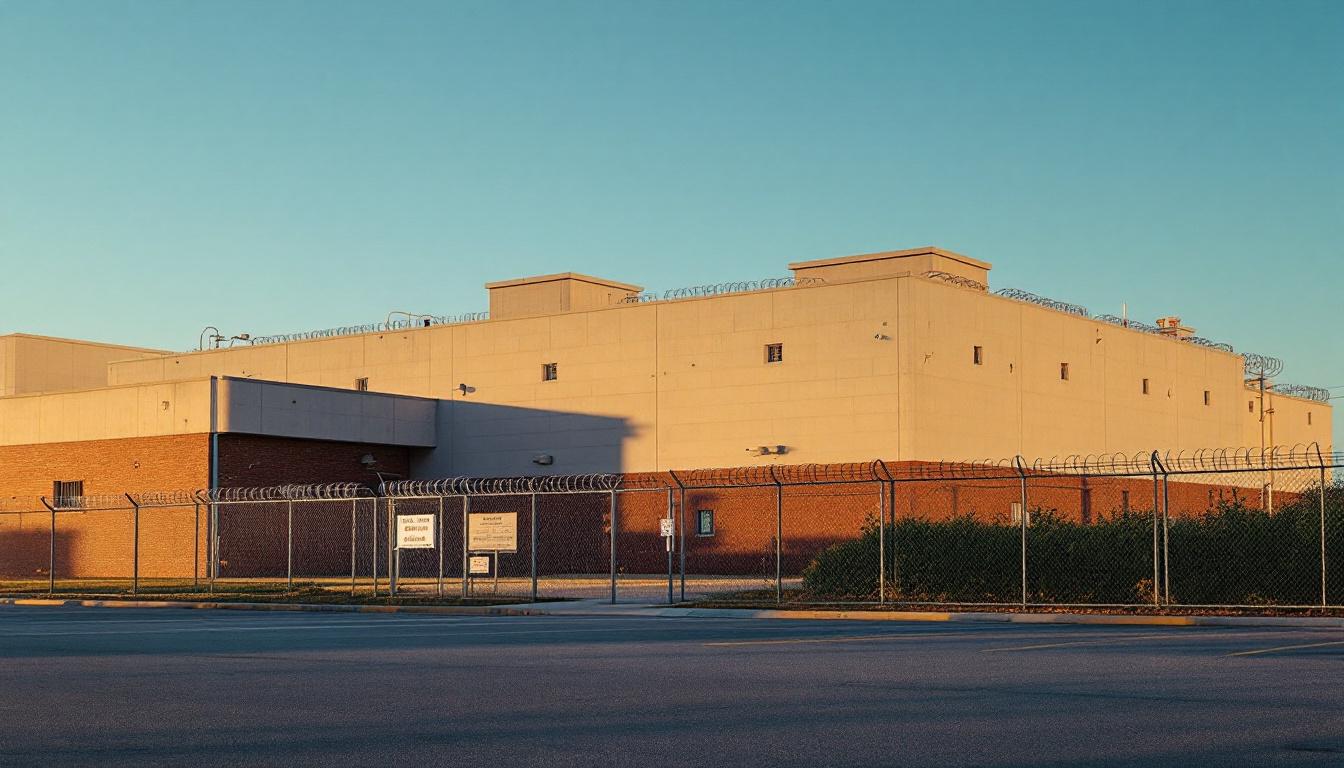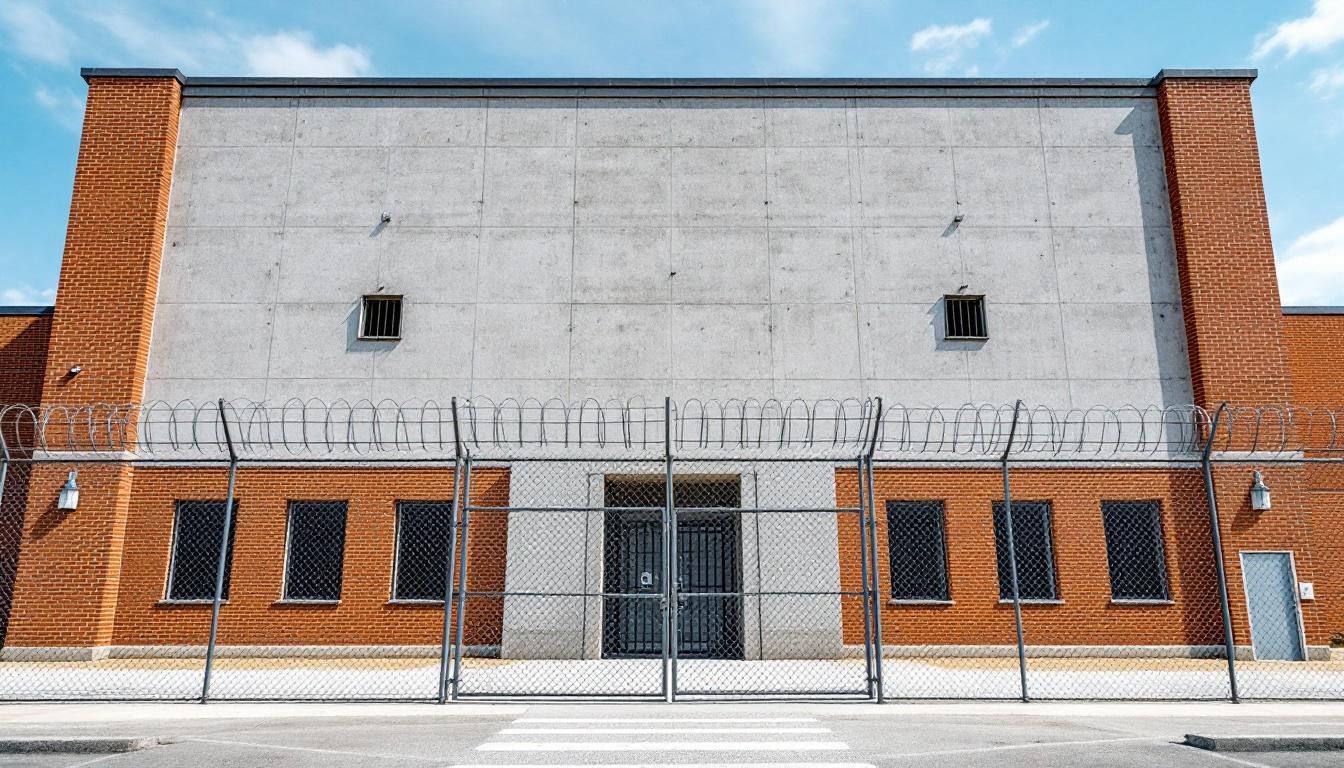
Quick Navigation
How to contact an inmate at Mecosta County Sheriff Department
This comprehensive guide will walk you through how to connect with an inmate at Mecosta County Sheriff Department. Follow the steps below to find an inmate and send letters and photos:
- Search for the inmate using our search tool below
- Create your account or log in to Penmate
- Write your message (up to 6,000 characters)
- Send instantly - inmates receive printed copies daily
Find an Inmate
Search for an inmate to start communicating today
Tip: You can search by first name, last name, or inmate ID number
To contact a person at Mecosta County Sheriff Department start by searching for the person on the official facility website. Perform a search by following these steps:
- Step 1: Enter their first name and last name into the search form and click "Search"
- Step 2: Locate their inmate record
- Step 3: Write down their Inmate ID and any housing information provided
Important! Be sure to enter the person's full name. Nicknames should not be used.
How to Send Messages to Inmates

You can use your phone or computer to send emails, letters, and photos to an inmate. Messages are sent electronically to inmate tablets or kiosks at the facility. If you would like to send a message, start by searching for an inmate at Mecosta County Sheriff Department.
Sending Photos and Postcards

A great way to send love and support to a loved one at Mecosta County Sheriff Department is to send photos and postcards. It only takes a few minutes to send photos from your phone and it makes a huge difference. You can also mail postcards with words of support and inspiration, or design your own postcard for special moments like birthdays and holidays.
Important! Be sure not to send any explicit photos or they may not be approved by the facility. You can also use a photo printing app like Penmate to make sure your photos are printed at the correct size (4x6 or 3x5) and are mailed according to the rules and regulations of Mecosta County Sheriff Department.
Frequently asked questions about Mecosta County Sheriff Department
-
How long does it take to deliver a message?
If you're sending an email message your letter is usually delivered within 24-48 hours. For messages sent via mail you should expect delivery within 3-7 days. All messages will need be approved by Mecosta County Sheriff Department.
-
How much does it cost to send a message to Mecosta County Sheriff Department?
You can send a message free using your phone or mail a message via USPS for the price of a $0.60 stamp and envelope. You can also purchase credits or e-stamps from services starting at $1.99.
-
What services can I use to contact an inmate at Mecosta County Sheriff Department?
Penmate
You can use Penmate to send letters and photos to an inmate from your phone. It's an easy way to stay in touch during your loved one's incarceration. Use the inmate locator to find an inmate's location and contact information, then you can send messages within a few minutes.
Securus messaging
Securus may be another option for communicating with an inmate at Mecosta County Sheriff Department. You can create a friends and family account and purchase credits to send messages. All messages will be reviewed and must be approved by the facility.
JPay
Some county jails and state prisons may support sending messages with JPay. You must register an account with the system, find your loved one, and purchase stamps to send messages. For some locations you can also attach photos.
Smart Jail Mail
You may also check if Smart Jail Mail is available at Mecosta County Sheriff Department. Smart Jail Mail is operated by Smart Communications and has contracted with some state and county jails. After purchasing credits, your messages and photos are sent to the facility, printed out, and then handed out to your loved one.
-
What is the mailing address of Mecosta County Sheriff Department?
Mailing address:
Mecosta County Sheriff Department
225 S Stewart Ave
Big Rapids, MI 49307
Phone: (231) 592-0150 -
What are the visiting hours at Mecosta County Sheriff Department?
Visiting hours at Mecosta County Sheriff Department vary by housing unit and security level. Generally, visits are scheduled on weekends and holidays, with some facilities offering weekday visits. Contact the facility directly at (231) 592-0150 or check their website for the current visiting schedule. Visits typically last 30-60 minutes and must be scheduled in advance.
-
What items are prohibited when sending mail to Mecosta County Sheriff Department?
Prohibited items typically include: cash, personal checks, stamps, stickers, glitter, glue, tape, staples, paperclips, polaroid photos, musical or blank greeting cards, hardcover books, magazines with staples, and any items containing metal or electronics. Only send letters on plain white paper with blue or black ink. Photos must be printed on regular photo paper (no Polaroids). Always check with Mecosta County Sheriff Department for their specific mail policies.
-
How do I send money to an inmate at Mecosta County Sheriff Department?
You can send money to an inmate at Mecosta County Sheriff Department through several methods: 1) Online using JPay, Access Corrections, or the facility's approved vendor, 2) Money orders mailed directly to the facility with the inmate's name and ID number, 3) Kiosks located in the facility lobby, or 4) Over the phone using a credit or debit card. Fees vary by method, typically ranging from $2.95 to $11.95 per transaction.
-
Can I schedule a video visit with an inmate at Mecosta County Sheriff Department?
Many facilities now offer video visitation as an alternative to in-person visits. At Mecosta County Sheriff Department, video visits may be available through services like Penmate, Securus Video Connect, GTL, or ICSolutions. Video visits typically cost $10-20 for 20-30 minutes and must be scheduled in advance. You'll need a computer or smartphone with a camera and reliable internet connection. Contact the facility for their specific video visitation policies and approved vendors.
-
What identification do I need to visit an inmate at Mecosta County Sheriff Department?
All visitors must present valid government-issued photo identification such as a driver's license, state ID, passport, or military ID. Minors must be accompanied by a parent or legal guardian who can provide the minor's birth certificate. Some facilities require visitors to be on the inmate's approved visitation list, which may require a background check. Contact Mecosta County Sheriff Department for specific ID requirements and visitor approval procedures.
-
How can I find out an inmate's release date?
To find an inmate's release date at Mecosta County Sheriff Department, you can: 1) Use the online inmate search tool if available, 2) Call the facility's records department, 3) Contact the inmate's case manager or counselor, or 4) Have the inmate provide this information during a call or visit. For privacy reasons, some facilities only release this information to immediate family members.
Facility Overview
Contact Information
Mecosta County Sheriff Department225 S Stewart Ave
Big Rapids, MI 49307
Phone: (231) 592-0150
Official Website

About Mecosta County Sheriff Department
County jails serve as critical detention and short-term correctional facilities within the broader justice system, and Montgomery County Jail, IL exemplifies this essential function through its operations in Hillsboro, MI. As part of the Midwest region's correctional infrastructure, this facility typically processes individuals awaiting trial, serving shorter sentences, or transitioning between different stages of the legal process. The facility generally operates within Illinois correctional standards while serving the Hillsboro community, creating a bridge between immediate detention needs and longer-term rehabilitation goals that align with state correctional objectives.
The holistic approach to corrections at this MI correctional facility often encompasses multiple phases of the detention and reintegration process. Programming may include educational opportunities, substance abuse counseling, and job readiness preparation designed to support successful community reentry. The population services typically extend beyond basic detention to include mental health support, family visitation coordination, and connections to community resources. These comprehensive offerings generally reflect the facility's role in supporting both public safety and individual rehabilitation within Montgomery County's justice framework.
Through its integration with state correctional goals, the facility often emphasizes preparing individuals for successful reintegration into the Hillsboro community and surrounding areas. This process-focused approach may involve collaboration with local service providers, court systems, and family support networks to create continuity of care. The programming structure typically addresses immediate needs while building foundations for long-term stability, recognizing that effective corrections involves supporting both individual transformation and community safety throughout the Midwest region.
Programs & Services
Through comprehensive support networks and targeted interventions, Montgomery County Jail in Illinois provides essential services designed to address the diverse needs of its population. The facility's approach centers on creating pathways for personal growth and successful community reintegration, recognizing that meaningful change often begins with access to appropriate resources and guidance. Staff members work closely with participants to identify individual goals and connect them with relevant programming opportunities that may help address underlying challenges while building practical skills for the future.
Educational initiatives form a cornerstone of the facility's programming structure, offering the population multiple avenues for academic and professional development. GED preparation courses typically provide foundational learning support for those seeking to complete their high school education, while education programs may cover various subjects to enhance basic literacy and numeracy skills. Moreover, vocational education opportunities often include hands-on training in practical trades and technical skills that can translate directly to employment opportunities upon release, helping participants develop marketable abilities that support long-term stability.
Support services extend beyond traditional educational offerings to encompass comprehensive reintegration assistance and spiritual care. The prisoner reentry initiative may supply crucial guidance on housing, employment searches, and navigating community resources, while identification document assistance helps address one of the most fundamental barriers to successful reentry. Additionally, chaplaincy programs often provide spiritual counseling and faith-based support for those seeking such services. Community service opportunities typically allow participants to give back while developing work habits and social connections, creating positive engagement with the broader community that can continue after release.
Daily Life & Visitation
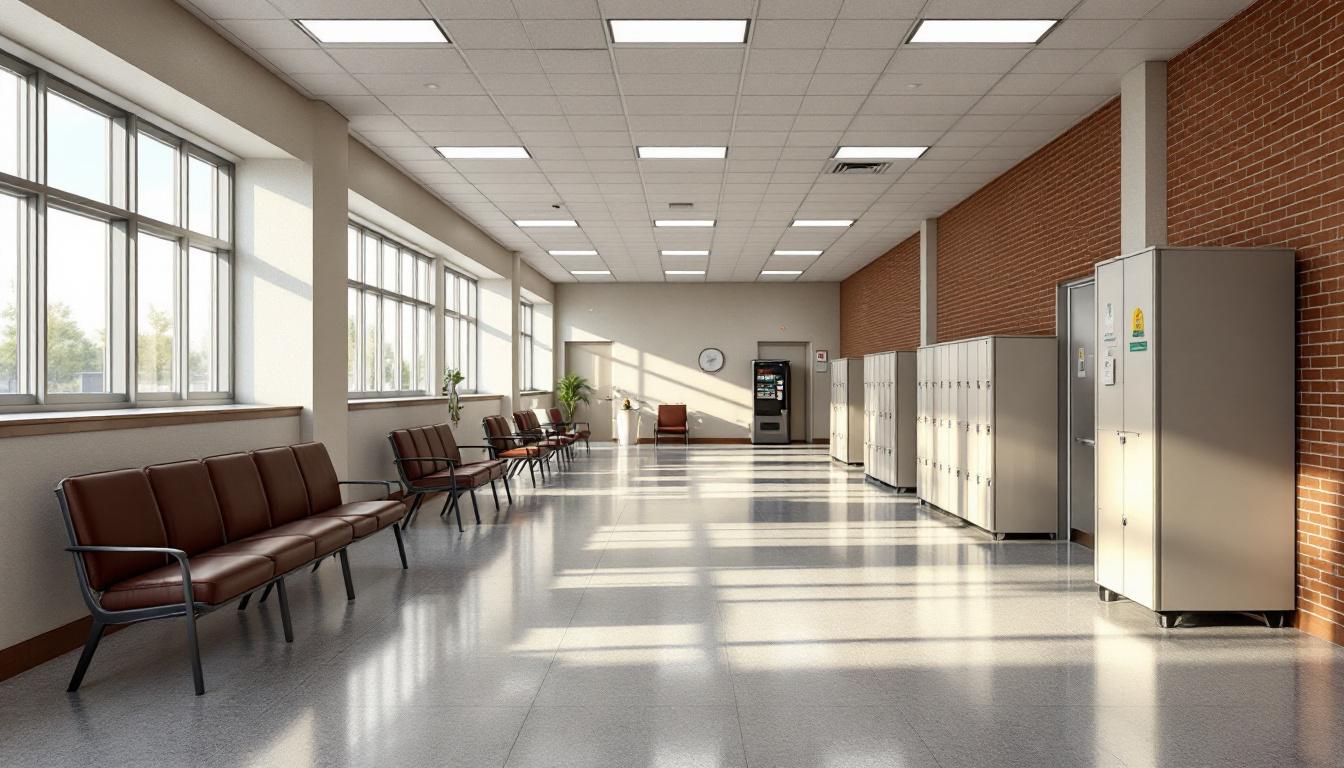
Organizational systems at Montgomery County Jail actively shape every aspect of the population's daily experience, creating predictable routines that supply both structure and security. At present, the facility operates on carefully coordinated schedules that typically begin with early morning counts and progress through designated periods for meals, programming, and recreation. The population generally follows established protocols for movement between housing areas, with staff coordinating activities to ensure smooth transitions throughout the day.
Housing units within the facility are typically organized by classification levels, with the population assigned to appropriate areas based on various factors including security needs and program participation. Living accommodations usually include shared cells or dormitory-style arrangements, with personal property allowances that may include basic hygiene items, approved clothing, and limited personal effects. Moreover, the facility generally provides access to commissary services where the population can purchase additional items within established guidelines, helping to supplement basic necessities provided by the institution.
Structured programming schedules supply the population with opportunities for education, vocational training, and counseling services that typically operate during designated hours throughout the week. Recreation and exercise opportunities are usually available in designated areas, often including outdoor recreation time when weather and security conditions permit. Whereas in-person visitation may follow specific scheduling protocols, the facility typically offers various communication options including phone privileges and potentially video calling services to help maintain family connections. Work assignments within the facility often include kitchen duties, maintenance tasks, and cleaning responsibilities that help the population contribute to daily operations while developing job skills.
Ready to Connect?
Start communicating with your loved one today
Search for an Inmate
